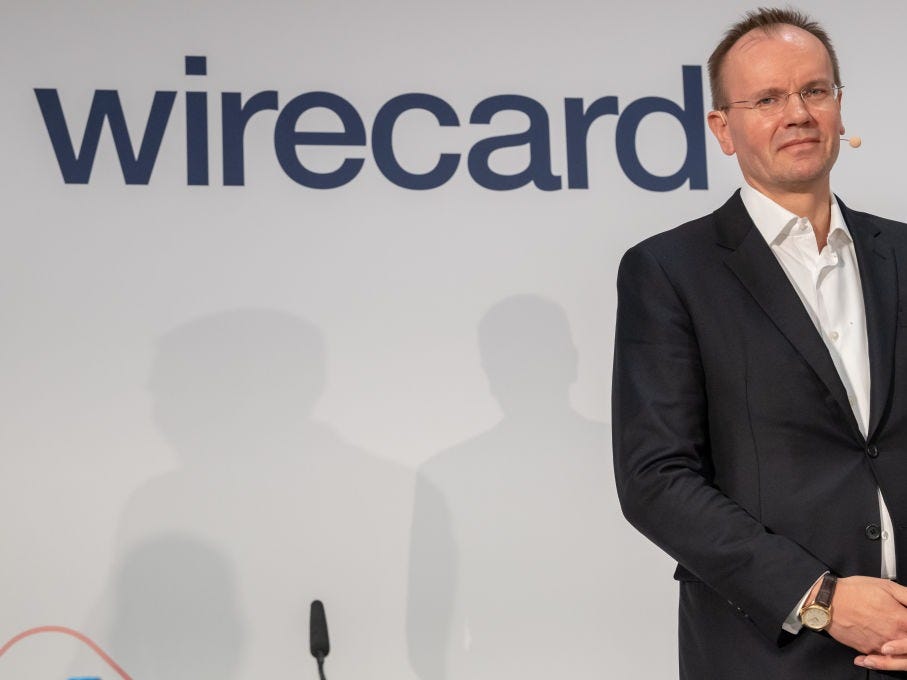- Wirecard shares soared on Tuesday on reports that former CEO Markus Braun, who only resigned last week, has been arrested.
- Braun was arrested by German prosecutors on suspicions of false accounting and manipulative business practises on Monday night.
- On Monday, the scandal-ridden firm said a missing $2 billion likely does not exist, triggering its shares to plummet as much as 46%.
- The company’s stock is down more than 80% in 2020.
- Visit Business Insider’s homepage for more stories.
Shares of German fintech Wirecard soared on Tuesday on reports that the ex-CEO of the scandal-ridden firm was arrested on suspicion of false accounting.
Wirecard shares were up 37% at €17.82 as of around 7 a.m. ET, according to Markets Insider data.
Markus Braun, who stepped down on Friday, was arrested by German prosecutors on suspicions of false accounting and manipulative business practices, according to multiple media outlets.
Braun turned himself in to Munich authorities on Monday evening after an arrest warrant was issued and is due to appear in front of a judge later on Tuesday.
He has not been charged with any crime as of the early afternoon in Europe on Tuesday.
Braun, who resigned last Friday, is facing allegations of portraying the company to be financially stronger than it was by inflating Wirecard's balance sheet.
News of the arrest has been positive for the stock price, as the German fintech's shares tanked as much as 46% on Monday on news that missing cash balance of 1.9 billion euros ($2.15 billion) likely does not exist.
The fintech had initially reportedly said the money was held in two Philippine banks, but the Filipino central bank denied the money had ever entered their accounts.
The fintech is holding "constructive discussions" with lenders about credit lines and future transactions, it said.
The scandal-ridden firm also withdrew guidance of its full-year-2019 and first-quarter-2020 results.
Wirecard said last week that its auditors at EY could not confirm "sufficient audit evidence" of about 1.9 billion euros ($2.15 billion) in its cash balances, effectively saying that the money is missing.
Wirecard, which was listed on Germany's benchmark index DAX two years ago, said there was a possibility a third-party had tried to "deceive" the auditor by creating false perceptions such an amount existed.
Despite Tuesday's rebound, Wirecard shares are still down more than 80% so far in 2020, having cratered last week.

